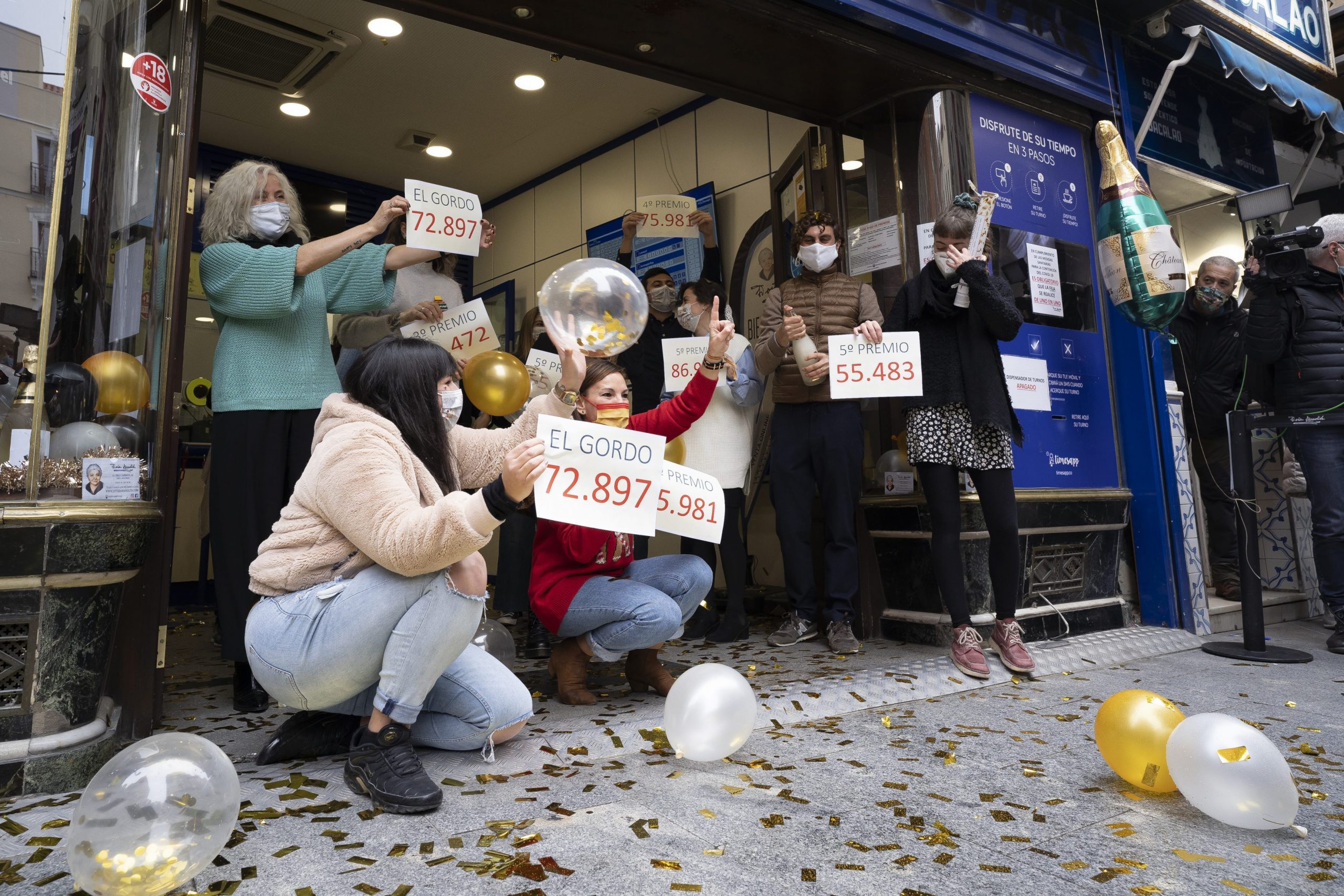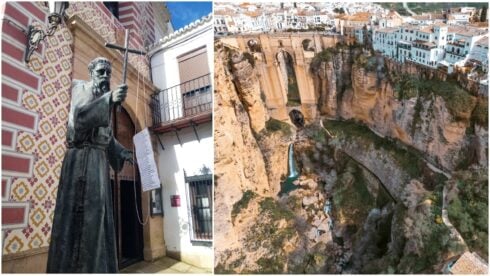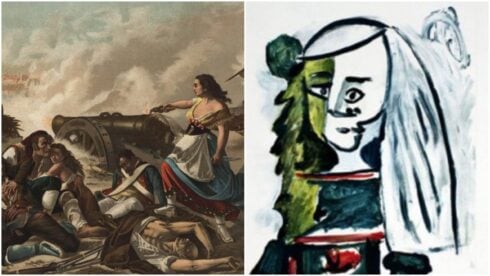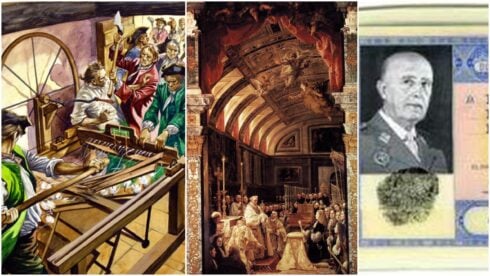WHAT is it about Spain’s Christmas Lottery (the Sorteo Extraordinario de Navidad) that makes 70% of over-18s in Spain try their luck each year?
The maximum jackpot in Spain’s Christmas Lottery – known as El Gordo or the ‘fat one’ – is €400,000 per person and way below the winnings of America’s Powerball lottery that paid out €672 million to a sole winner in 2017.
According to the advert for Spain’s Christmas Lottery in 2021, the joy of the Sorteo Extraordinario de Navidad is in ‘sharing our luck with the people we share our lives with’.
But what does that mean exactly?
Here are 11 things you need to know about Spain’s annual Christmas Lottery, also known as the Lotería de Navidad.
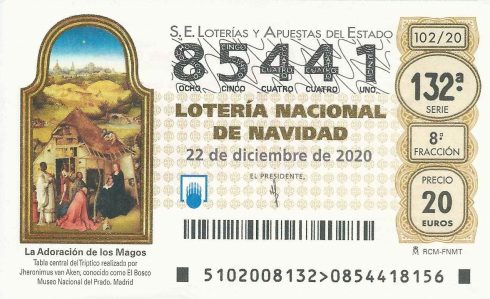
1. El Gordo – the Christmas jackpot
Spain’s Christmas Lottery is famous for giving out the most number of prizes per ticket purchased in the world.
Whereas many lotteries across offer a single jackpot to a single ticket holders, in Spain hundreds of people can each win the €400,000 El Gordo prize.
Every player also has an equal 1 in 100,000 chance of winning El Gordo, compared with a 1 in 139,838,160 change of winning a EuroMillions jackpot.
This is because Spain’s Christmas Lottery limits itself to 5-digit numbers from 00000 to 99999.
Selling one ticket per person means just 100,000 tickets on sale, which is why Spain’s Christmas Lottery has devised a system allowing more than one person to win the jackpot.
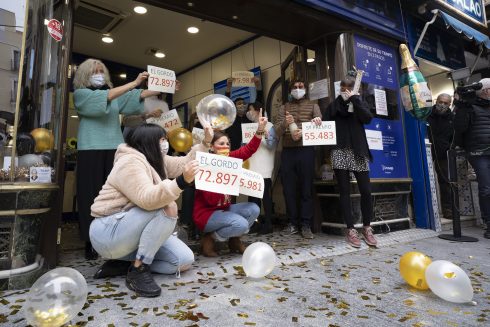
2. Series, billetes and décimos
The ticketing system works as follows:
- Since 2020, each 5-digit number or numero is divided into 172 series.
- A ticket or billete buys one these series, which cost €200 each.
- Because the cost of billete is high, they are each divided into 10 décimos costing €20 each.
When a 5-digit number is named as the winner of El Gordo, this means that each billete is awarded €4 million.
Because there could be hundreds of billetes with the same winning 5-digit number, Spain’s state owned Loterías y Apuestas del Estado sets aside €720 million to pay up to 172 billetes their €4 million each.
If you have a décimo of one of the winning billetes, you are awarded 10% of the €4 million El Gordo prize, or €400,000.
The nature of the Christmas Lottery in Spain means that members of the same family, community, workplace, sports team, association, bars, shops and restaurants often buy décimos of the same 5-digit number and so each win €400,000.
Sometimes this can make things really awkward – like for the Greek expat in 2011 who was the only one of 70 households in his village in Huesca not to buy a décimo with the winning 5-digit number. All his neighbours got €100,000 that year.
The system also creates plots for comedy films, like Villaviciosa de al lado where a group of men each win El Gordo but can’t get their prizes in case their wives found out they bought the décimos at a brothel.
Sometimes hundreds of people in a single town do go on to win El Gordo – as happened in the 2,000-strong town of Grañén in Huesca in 2011, where winners included the local lottery vendor’s husband.
That’s why the motto for Spain’s 2021 Lotería de Navidad is ‘sharing our luck with the people we live our lives with’ because you stand a chance to win an equal jackpot alongside all your loved ones.

3. Extra premios and consolation prizes
The Christmas Lottery is not all about El Gordo: an estimated 14% of participants will win a prize ranging from their money back to €125,000 per décimo.
There are 1,807 unique prizes in total, though sometimes the same 5-digit numbers can win more than one.
After El Gordo, the prizes work as follows:
- The Segundo Premio (second prize) gives €1,250,000 per billete or €125,000 per décimo. Each player has a 1 in 100,000 chance of winning.
- The Tercer Premio (third prize) gives €500,000 per billete or €50,000 per décimo. Each player has a 1 in 100,000 chance of winning.
- The Cuarto Premio (fourth prize) gives €200,000 per billete or €20,000 per décimo for up to two different 5-digit numbers. Each player has a 1 in 50,000 chance of winning.
- The Quinto Premio (fifth prize) gives €60,000 per billete or €6,000 per décimo for up to eight different 5-digit numbers. Each player has a 1 in 12,500 chance of winning.
- La Pedrea (stone-throwing) gives €1,000 per billete or €100 per décimo for 1,794 different 5-digit numbers. Each player has nearly a 1 in 50 chance of winning.
- There exist 11 other prizes for billetes that range from €20 per décimo to €2,000 depending on whether they the share or similar digits as El Gordo or the Segundo or Tercer Premios.

4. The big day: December 22
Tickets for the Sorteo Extraordinario de Navidad go on sale by July each year in Spain, but December 22 is the date everyone is waiting for.
At 9 a.m. children from a Madrid school for orphans of public servants start singing out the 1,807 prizes and the lucky 5-digit numbers in a mammoth session that takes up to four hours.
The children rotate in shifts as they pick out prizes one-by-one on national TV as millions watch from their sofas, bar tops and phones for the year’s El Gordo number to show.
Though the El Gordo prize is picked at random, the pair of children who pick it out are typically applauded during the ceremony at the Teatro Real de Madrid.
On stage at the theatre two large, metal sphere-shaped vessels are used. One contains 100,000 box-wood balls each containing a unique 5-digit number inscribed by laser. The other sphere contains box-wood balls inscribed with one of 1,807 prizes. Balls are spun in the spheres before one child picks out a 5-digit number and another child picks up one of the corresponding 1,807 prizes, before reading them out together.
Prizewinners typically donate money to the San Ildefonso school. According to tradition, orphans of public servants attended the school and used to sing Christmas carols through Madrid to raise money for their education, before lottery officials tasked them with singing out the Christmas lottery numbers.
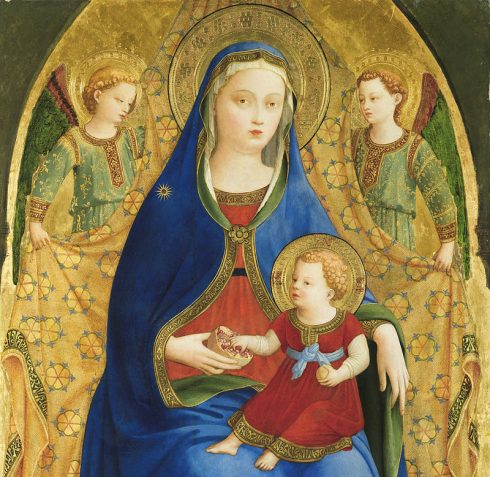
5. Though shalt buy a lottery ticket
For the 2021 Sorteo Extraordinario de Navidad, authorities have chosen the 1426 painting La Virgen de Granada by Fra Angelico to decorate this year’s tickets.
The tradition of choosing paintings associated with religion dates back the 1960s, when lottery authorities began experimenting with different pictures for their different national lotteries.
While authorities put artistic, literary or sporting images on national lottery draws throughout the year, they always used a religious image for the Christmas Lottery due its proximity to Christmas day.
The tradition has continued unbroken to this day.
6. In war & peace
Spain’s Christmas Lottery is the second-longest running in the world, with a history dating back to 1812.
Lottery officials in southern Cádiz held Spain’s first Sorteo de Navidad on December 18, 1812, as part of a bid to raise money for Spanish troops fighting Napoleon’s armies.
The Christmas lottery has continued unbroken ever since, not even stopping for the Spanish Civil War when Barcelona fell to Franco and Republicans moved the lottery to their stronghold of Valencia.
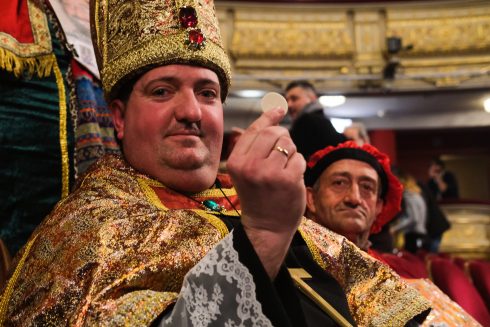
7. Where can I buy a Christmas Lottery ticket in Spain?
You can buy tickets for the Sorteo Extraordinario de Navidad at lottery ticket offices throughout Spain. Find your nearest office by using this online portal, or type in ‘Loteria Nacional’ to Google Maps and locate your nearest office.
Lottery ticket offices are commonly found in hypermarkets, on high streets and at many tobacco shops, called estancos.
You can also buy a ticket online through Spain’s official Loterías y Apuestas del Estado website.
You might also see your local bars, restaurants or shops advertising €20 décimos for specific numbers. If you buy one of these, you might have the added bonus of a community of people with which to watch the lottery results on December 22.
8. Do you pay tax on lottery winnings in Spain?
The Christmas lottery was tax free until 2013, when Spain’s government stuck a 20% tax on winnings over €2500.
This means that if your décimo has the El Gordo 5-digit number, you’ll take home €320,000 instead of €400,000 after taxes have been paid.
Spain’s Treasury also takes a 22% cut of all money spent on lottery tickets, with a remaining 8% paying lottery ticket vendors, salaries and administration costs and the remaining 70% used to pay prizes.
9. How do I collect Christmas lottery winnings in Spain?
For winnings up to €1000 you can collect lottery winnings at any lottery ticket office in Spain.
You can locate your nearest ticket office by using this official online portal.
For larger winnings you will need to go to a Spanish high-street bank, such as Santander, BBVA, Banco Popular and Caixabank.
The banks do not charge commissions on payments or request you open a bank account.
You can also make contact directly with Christmas Lottery body, Spain’s Loterias y Apuestas del Estado.
Read More:
MONEY SHOWER: Malaga receives MILLIONS in Spain’s El Gordo lottery
Costa del Sol residents celebrate after scooping huge El Gordo lottery prize win
Spain’s El Gordo is the world’s biggest lottery… and it was originally set up to fight Napoleon
Click here to read more Must Read News from The Olive Press.

